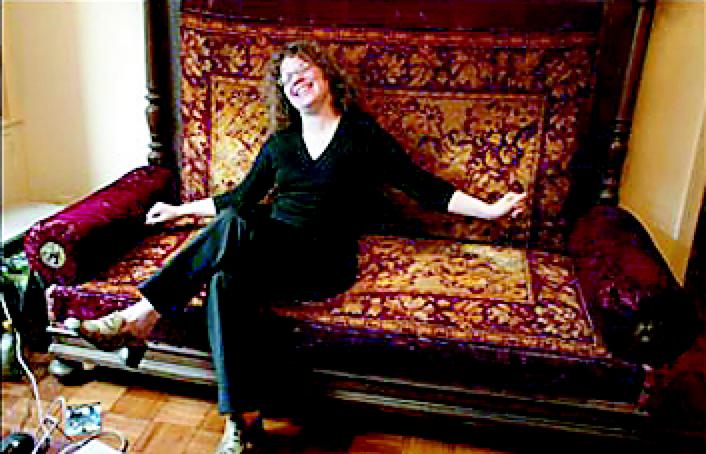As this self-made autobiography tells us, Pearl was raised in the ultra-orthodox Hassidic community of Borough Park, N.Y. A stone's throw from Manhattan, the community prides itself on its utter lack of worldliness. Televisions and movies are forbidden, dress is extremely modest, language is old world and religion is everything. Pearl's parents divorced when she was young, and she was soon transferred to a much more progressive Jewish community. Pearl further removed herself from her orthodox beginnings by going to college (a major sin for women) and by not getting married at age 18. (In her mid-20s, Pearl is now considered a pathetic old hag.)
Desperate to reconnect with her roots, Pearl concocts an elaborate graduate project. She has received an educational grant and plans to use it to return to her family's country of origin, Hungary, and collect old Hassidic tales. Her idea is to make a documentary about her trip, and her hope is that this will help her connect with her estranged father. No such luck. He's not interested in an ambitious Fullbright scholar striving to collect her family's history and mythology. He just wants his daughter to give up these foolish pursuits, get hitched to a nice Jewish boy and start pumping out babies like a PEZ dispenser.
Over the course of the film, Pearl interviews a number of people who have “slipped” from the Orthodox community. Like the thematically similar doc Trembling Before G_D, there is a profound sense of freedom and loss among these ex-Hassidim. Young, hip and happy to finally be themselves, they nonetheless long for the love, strength and interconnectedness of a community that now all but shuns them. Each of them tries to offer some kind of advice or comfort to Pearl, though the most direct of the bunch simply says, “It's like the Garden of Eden.” You've been cast out and there's no returning.
Nonetheless, Pearl plugs on. Just before getting on the plane to Hungary, Pearl's father reaches out to her with a simple request: “See if you can get the divan.” The furniture in question is part and parcel of an old family legend. According to the story, Pearl's great, great grandfather offered the couch to a wandering rebbe (Hassidic rabbi) to sleep on. Afterward, the man was blessed with great fortune. Since then, this legendary couch has been slept on by three generations of rebbes. (Trust me, that's a big deal in the Hassidic community.) Pearl sees this as her shot at redemption. If she can't give her father grandchildren, she can at least deliver him an old couch.
Throughout eastern Europe, Pearl gathers stories from her distant relatives, a patchwork quilt of family history, Jewish folktales and Holocaust remembrance. And yet, Pearl always returns to the subject of the magical divan. Miraculously, most everyone seems to know the story. Pearl's feverish quest to recover the couch (in more than one sense of the word) takes up the bulk of this technically crude, but philosophically sincere film.
As an examination of the Hassidic community, Divan sticks mostly to the surface. Trembling Before G_D (which deals with homosexuality among the Hassidim) digs far deeper into questions of faith. As a family portrait, the film seems similarly shallow. Pearl gives little credit or screentime to the mother who raised her, and never actually confronts anyone with any hard questions. She just wants everyone to get along. With her quirky, film fest-friendly narration, Pearl seems a little too eager to come across as a witty, likable gal. And yet the film manages to sideswipe viewers with a magnificent twist ending that is hilarious, moving and beautifully in line with the film's idea of self-mythologizing. If you don't like the story you've been given in life, make up your own. Thankfully, Divan is a ripping good story.



